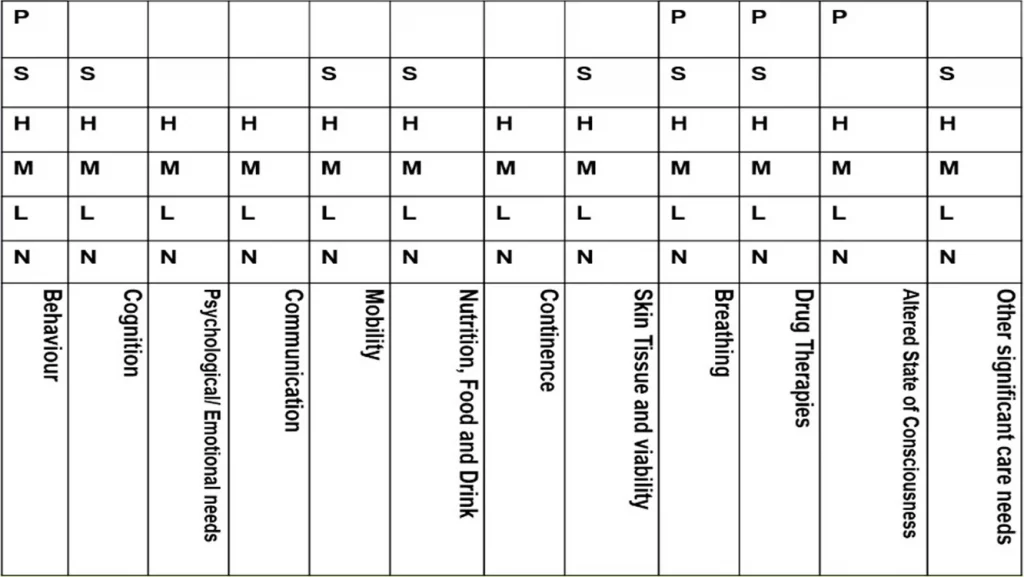NHS Continuing Healthcare (CHC) is a package of care arranged and funded solely by the Clinical Commissioning Group (NHS in England). This is for a person who is aged 18 or over and has been found to have a ‘primary health need‘ that has arisen because of disability, accident or illness. This is regardless of where the care is to be provided and includes: care at home, residential or nursing homes.
Primary health need
Although no legal definition for ‘primary health care’, the term comes from an important Court of Appeal case, the ‘Coughlan case’. Decided a Local Authority is limited to nursing care which is:
- merely incidental or ancillary to the provision of the accommodation which a local authority is under a duty to provide and
- of a nature that a social services authority can be expected to provide
Who administers CHC?
The Clinical Commissioning Group (CCG) that holds the contract with the GP practice responsible for care at the time of application is responsible for deciding eligibility to Continuing Healthcare.
The Checklist
The National Screening Continuing Healthcare Checklist is used as an initial screen. It aims to help trained health/social care professionals identify people who should have a full assessment to determine their eligibility.
Following a positive checklist, a full assessment should be carried out by a Multi-Disciplinary Team (MDT). The Decision Support Tool (DST) used to make a recommendation for eligibility to CHC.
The checklist is based on 11 of the 12 care domains (areas of care need) used in the decision support tool. The domain ‘other significant needs’ is not used. The care domains broken down into three levels: A, B or C (where A represents a high level of care need, and C is a low level of care need)
A full assessment for NHS Continuing Healthcare is required if there are:
Two or more domains selected in column A, five or more in B or one in A and four in B; or one in a domain marked with an * – Behaviour, Breathing, Drug Therapies or Altered State of Consciousness.
Decision Support Tool
The Decision Support Tool is used during a full assessment (where appropriate) and follows a checklist screen. It is not an assessment in itself but a way of bringing together and applying evidence and a summary of the person’s needs to be used by the Multi-Disciplinary Team to make a recommendation to the CCG about eligibility or ineligibility.
A clear recommendation (and decision) of eligibility for NHS Continuing Healthcare would be expected in each of the following cases:
A level of priority needs in any one of the four domains that carry this level.
A total of two or more incidences of identified severe needs across all care domains.
A severe level need combined with needs in a number of other domains or
A number of domains with high and/or moderate needs
Care Domains

The primary health need should be assessed by looking at all of the care needs and relating them to twelve care domains (below) AND four key indicators; nature, intensity, complexity and unpredictability.
The Fast Track Tool
The Fast Track pathway tool is used when a person has a rapidly deteriorating condition and may be entering a terminal phase. It can only be completed by an ‘appropriate clinician’ with sufficient evidence to establish eligibility.
Where it is appropriate to use the Fast Track Pathway Tool, this replaces the need for a Checklist and DST to be completed
Challenging a decision not to proceed to full assessment
If you have a negative outcome from a Checklist, you may ask the CCG to reconsider its decision and agree to a full assessment of eligibility.
Challenging an assessment decision
Where a full assessment has been undertaken of potential eligibility using the Decision Support Tool (or by use of the Fast Track Pathway Tool), and a decision has been reached, challenging that decision should be addressed through the local resolution procedure, initially.
If you would like some help please Get In Touch.
Care Navigators




